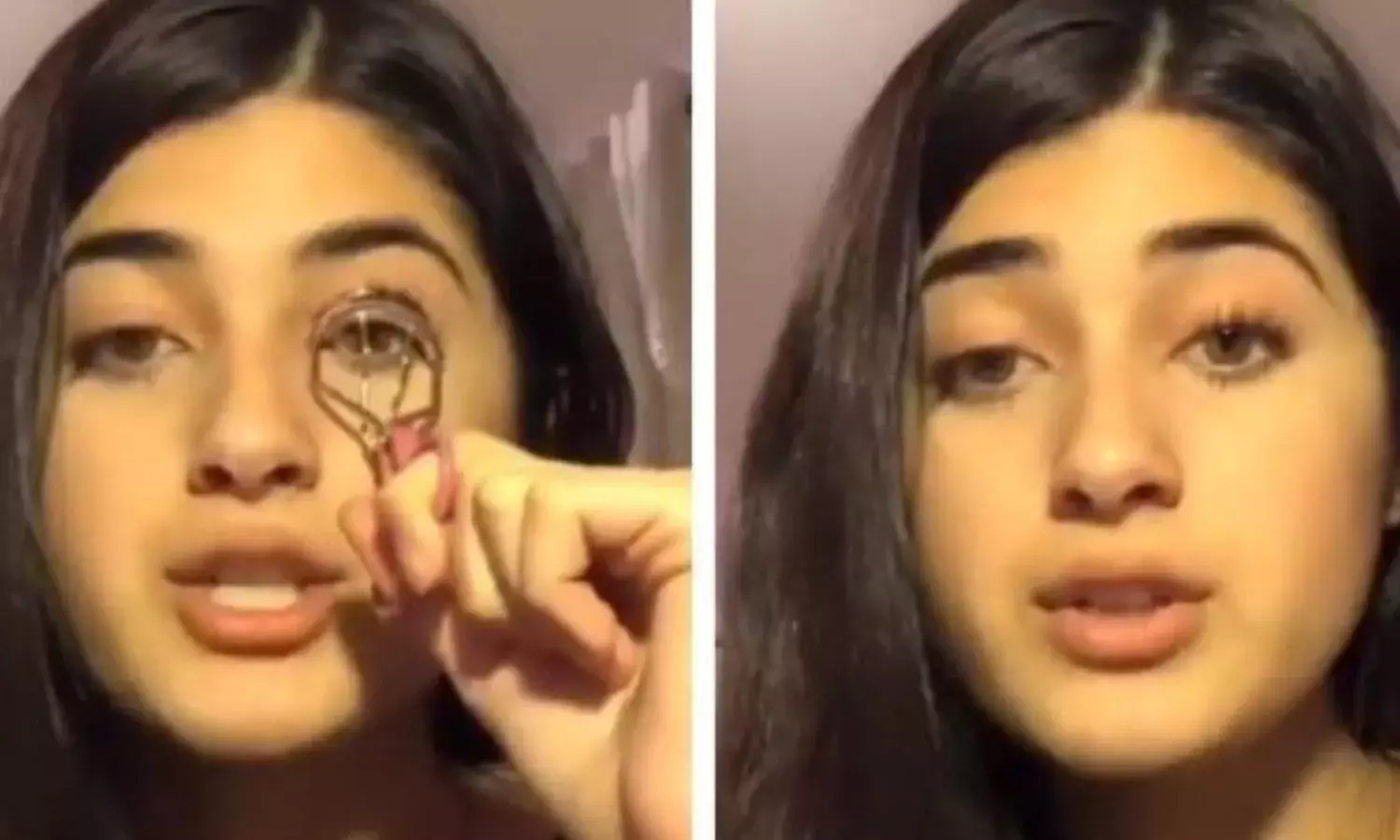Tik Tok Apologises: The Story of a Make-up Tutorial's Impact
Video goes viral;

Tik Tok — the Chinese short-video sharing app — recently issued an apology to the 17-year-old Afghan American Feroza Aziz for banning her account on November 25, 2019.
Feroza's make-up tutorial video on ‘How to get long eyelashes’ went viral, crossing 1.5 million views in a few hours.
After all, behind the façade of a make-up tutorial, Feroza skilfully talked about the ethnic cleansing of at least one million Uighur Muslims in China.
Divided into three parts, the video talked about the politics of concentration camps in Xinjiang, Chinese autonomous territory. She also spoke about the atrocities suffered by the Uighur Muslims in these concentration camps as well as the mandatory conversion into different religions.
After Feroza tweeted publicly, demanding answers regarding this unprecedented move, Erin Han (Head of Safety at TikTok US) replied to her, stating ‘human moderation error’ as the sole reason behind her account suspension.
Meanwhile, he also elucidated why Feroza’s previous account was suspended on November 14, 2019, for having the picture of Osama bin Laden in one of the satirical videos. It went against the community guidelines and protocols on ‘terrorism-related imagery’, he reiterated.
Feroza has rejected the apology and considered the excuse as ‘extremely suspicious.’
“Do I believe they took it away because of an unrelated satirical video that was deleted on a previous deleted account of mine? Right after I finished posting a 3-part video about the Uyghurs? No,” she tweeted.
Vicky Xiuzhong Xu, a Chinese journalist working in Australia, uploaded another similar make-up tutorial video on November 29 to speak against the censorship implemented by Tik Tok, exposing the human rights abuse in China against the Uighur Muslims.
Simultaneously, a National Security Investigation against Beijing-based company Bytedance has been initiated in the US since early November. Bytedance, the parent company of Tik-Tok, is under fire for Chinese interference and political censorship of its content.
How numerous user’s data of American citizens is stored by them is also a controversial issue.
US Senators Tom Cottons and Chuck Schumer have publicly questioned the legitimacy of Tik Tok, demanding the American Intelligence community to investigate Tik Tok. They have also accused it of spying on US citizens.
The UK based newspaper The Guardian published the leaked documents from the Communist Party on November 24, 2019. Termed as ‘China Cables’, the leaked documents confirm the ideological framework, ethnic cleansing and the very structure of the concentration camps in China. The Guardian had received these classified documents from International Consortium of Investigative Journalists (ICIJ).
These documents also mentioned how Tik-Tok’s moderators had to censor videos and content related to Tibetan Independence, Tiananmen Square as well as the banned Falun Gong, a religious group. These guideline moderations are mentioned under the section ‘“hate speech and religion’ in the app.
Naturally, suspicion arose on Tik-Tok’s censoring of content related to the Hong Kong protests.
Alex Zhu, 40, TikTok’s Chief, has defended the platform’s data privacy, claiming that user data of Americans is not stored on the servers at China. It is stored in Virginia, with a backup in Singapore, he recently clarified.
He also distanced the app’s functioning from any Chinese bureaucratic meddling.
Initially, China declined to confirm these cables and called it ‘fabricated’ and ‘fake news’. After mounting pressure, satellite images and international condemnation, these concentration camps were called as ‘vocational training’ centres to prevent terrorism, the Chinese officials explained.
But the alarming reality remains questionable.
Along with rape, torture, and abuse, the camp inmates have to fulfil the mandatory 12-month sentence under massive surveillance, the leaked cables revealed.
Earlier this week, Mike Pompeo, the US Secretary of State has called for an immediate release of the detained Uighur Muslims in the concentration camps.
In response, Geng Shuang, the Official Spokesperson at China's Foreign Ministry, has called it a US’s intervention in the domestic politics of China. No ethnic, religious or human rights abuse is currently happening in China, he reiterated.
Irrespective of the accusations of Chinese meddling and data breach allegations, Tik Tok remains the third most downloaded non-gaming app, globally. It has recently crossed more than 1.5 billion downloads.
Nevertheless, in the current times of excessive social media use, the question of privacy is a Pandora’s box. The nonchalance of social media platforms from political intentions and interferences is quite ubiquitous to a degree that justice for human rights abuse itself cannot fetch ample interventions.

